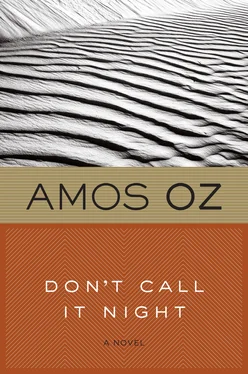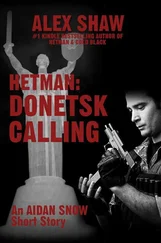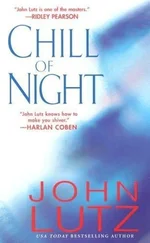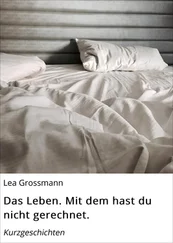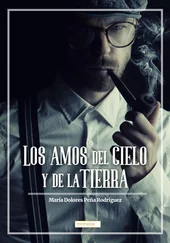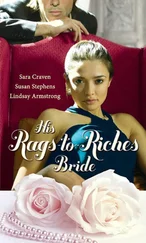Amos Oz - Don't Call It Night
Здесь есть возможность читать онлайн «Amos Oz - Don't Call It Night» весь текст электронной книги совершенно бесплатно (целиком полную версию без сокращений). В некоторых случаях можно слушать аудио, скачать через торрент в формате fb2 и присутствует краткое содержание. Год выпуска: 1997, Издательство: Mariner Books, Жанр: Современная проза, на английском языке. Описание произведения, (предисловие) а так же отзывы посетителей доступны на портале библиотеки ЛибКат.
- Название:Don't Call It Night
- Автор:
- Издательство:Mariner Books
- Жанр:
- Год:1997
- ISBN:нет данных
- Рейтинг книги:4 / 5. Голосов: 1
-
Избранное:Добавить в избранное
- Отзывы:
-
Ваша оценка:
- 80
- 1
- 2
- 3
- 4
- 5
Don't Call It Night: краткое содержание, описание и аннотация
Предлагаем к чтению аннотацию, описание, краткое содержание или предисловие (зависит от того, что написал сам автор книги «Don't Call It Night»). Если вы не нашли необходимую информацию о книге — напишите в комментариях, мы постараемся отыскать её.
Notable Book of the Year
“A rich symphony of humanity. . If Oz’s eye for detail is enviable, it is his magnanimity which raises him to the first rank of world authors.” —
(UK)
At Tel-Kedar, a settlement in the Negev desert, the longtime love affair between Theo, a sixty-year-old civil engineer, and Noa, a young schoolteacher, is slowly disintegrating. When a pupil dies under difficult circumstances, the couple and the entire town are thrown into turmoil. Amos Oz explores with brilliant insight the possibilities — and limits — of love and tolerance.
“Vivid, convincing, and haunting.” —
Don't Call It Night — читать онлайн бесплатно полную книгу (весь текст) целиком
Ниже представлен текст книги, разбитый по страницам. Система сохранения места последней прочитанной страницы, позволяет с удобством читать онлайн бесплатно книгу «Don't Call It Night», без необходимости каждый раз заново искать на чём Вы остановились. Поставьте закладку, и сможете в любой момент перейти на страницу, на которой закончили чтение.
Интервал:
Закладка:
I told her that Theo wasn't my husband, that is, we weren't really married. Tal said, I've heard people talking about it, it doesn't matter; they say all sorts of things, bla bla bla, anyway I feel like giving you a kitten. Well, 'bye then. About Theo, I really wanted to ask you something, I dunno, actually it doesn't matter.
What about Theo?
Nothing. It doesn't matter.
What did you want to say about him?
It doesn't matter. He's a special kind of person.
Special in what way, Tal?
Hard to say. A bit frightening.
She put down the poem and left.
Theo sat the whole evening mending the old typewriter, a forty-year-old Baby Hermes that I found after the second accident in one of my father's drawers. I'd never seen him using it. My aunt sometimes used it to tap out harsh letters to the paper against violence, cruelty or meat-eating. When the house was packed up I took it with me. He sat up till nearly midnight taking it apart and oiling it and putting it all back together again, with the tiny springs that join the arms of the keyboard to the battered keys. He had put on my glasses to help him see better. For an instant he looked to me like a patient Jewish watchmaker from an earlier generation: his slightly cocked head, his partly closed eye that looked larger through the lens of my glasses, his pursed lips under his grey moustache, his greying hair with its military cut, the set of the thick shoulders supporting the powerful neck, everything testified to the immense concentration that he was devoting to his work. I stood quietly behind his back, barefoot, for a few minutes, fascinated by the skill of his fingers. As if generations of fiddlers and scribes had a share in it.
When he had finished repairing the typewriter I made us some herbal tea. Theo said he remembered the clever coffee with which I used to make men's heads spin in Caracas. Clever? Heads spin? Well, he was referring to the cognac and the Indian powder I laced men's coffee with to bewitch them so that they couldn't resist me. And the cactus essence I used to cure us both of relapsing fever. Listen, Theo, we could go to Galilee this summer instead. Why Galilee? Scandinavia. We could hire a red open-topped sports car and drive around the fjords. Or get a new car? Or adopt a kitten?
He took off the glasses, lowered his head as if to butt, and slowly scratched his neck. He squinted at me obliquely, as though he had managed to decipher a dangerous plot. After a ruminative silence he declared that he had a shopping list in his head. First, a small desk for the corner of my bedroom. Second, a high-powered reading lamp. Third, how about a word processor instead of that wreck of a typewriter that would soon break down again, because its term of office was long since over. Although actually there was life in the old girl yet. And by the way, what did Benizri say when you went to see him yesterday? Same as last time? Or was he prepared to meet you halfway? Sorry. Question abandoned.
I hugged him from behind and enjoyed the warmth of his shoulders against my breasts and the way I made the bristles stand up on the back of his neck. For your information, I said argumentatively, Benizri is beginning to soften. If Batsheva Dinur gives him the green light he is willing to recommend setting up a fact-finding team. If I were you, Theo said, putting his arm round my waist, I would look for a compromise. I might go for a modular concept, a gentle start-up period, with, say, something like seven or eight patients in the first year, not more, running the place as a residential centre, with good fences, and, at least in the first phase, with hardly any link with the community. That way the opposition would die down. And another thing: if I were you I'd insist on putting it on a sound businesslike basis, at least a thousand dollars a month per patient, starting with kids from well-to-do homes, and to keep the town happy we should take in an addict or two from local families, with an eighty percent reduction. And the whole thing has to be subject to rigorous public scrutiny, with a business licence that could follow on a legally binding agreement between the foundation and the Town Council. I would write into the agreement that the Council should reserve the right, on the grounds of public interest, not to renew the licence at the end of the year. What's more, I'd be willing to renounce from the outset, in writing, the right to take legal action if the licence were not renewed. This concept seems to me to be the only chance of making any headway. Let's say, to gain a bridgehead here. That's the way I would couch the proposal if I were in your shoes. And even then it's pretty chancy.
But Theo, you're not in my shoes, I said.
Theo said: Yes. No.
Yes and no?
I meant yes, Noa, I'm not in your shoes.
A girl said to me today that she thinks nobody can know anything about another person.
Know. What does knowing mean?
The water's still boiling. Let's have some more tea. Knowing means getting outside yourself. At least trying to. Now and again.
Do you remember once, in Caracas, you said that a couple of teachers without children would spend their whole time correcting each other. And you said it wouldn't be easy but it wouldn't be boring. That's what you said, Noa. Even so, there are moments when I really am in your shoes and I wish you were in mine.
That's enough talking. Let's make love.
What here? In the kitchen?
Come on. Right away.
I switched off the overhead light and undid his wide leather belt that smelled of old leather and sweat, and snuggled into his hairy chest. My fingers tried to do the same to him as his fingers had done when he was mending my typewriter. Afterwards we stood outside on the balcony in the dark and saw the quicksilver river that the moon was sketching across the hills all the way to the horizon. We were standing very close but without touching or talking, and that is how we slowly sipped herbal tea and listened to the sound of a night bird that we could not name.
20
AND once she told me about a young traveller from Ireland whom she picked up in the car on the way to a conference of literature teachers near Tiv'on. It was at four o'clock in the afternoon on a rainy December day a year and a half ago. Because it was foggy and the days were so short she had to turn her headlights on early. The moment she did so they picked out a long-haired figure who looked from a distance like a girl, standing by the roadside weighed down by a huge backpack, making a waving sign that is not usual in Israel. When the young man climbed into the car she noticed his boots were full of water. They were large, clumsy boots that reminded her of the lace-up boots that her Aunt Chuma used to wear as she charged around the house or went out to gather medicinal herbs on the slopes of Mount Carmel. As he sat down beside her with his backpack on his lap she noticed a strip of cloth sewn across it bearing the words: "ALL YOU NEED IS LOVE". Both the youth and the backpack were drenched.
He had set out from his home in Galway the previous evening and hitchhiked across Ireland overnight, then flown from Dublin to Birmingham, from where he had arrived two hours earlier on a charter flight. He was on his way now to look for a girl called Daphne who was apparently working as a volunteer in a kibbutz somewhere in Galilee. He did not know her surname, or the name of the kibbutz. Daphne. She was from Liverpool. They had recently spent a single night together. As they were parting she had told him that she was off to Galilee soon. He had not seen her since. She loved sheep and wide open spaces. Her dream was to be a shepherdess. He had never been in Israel before, but he had a map and you could see on it that Galilee was not a very big area. He could go from one kibbutz to another until he found her. He wasn't short of time. In fact, he claimed, being short of time was self-defeating and went against the secret of life. If his money ran out, he would try to get some temporary work somewhere, whatever turned up, he didn't care, back home he was a carpenter's mate, in Portugal he had put up telephone lines, in Copenhagen he had once appeared in a small cabaret singing folksongs from the west of Ireland. Anyone who has some goodwill can find goodwill everywhere. So he said. Noa suddenly noticed that he was ill. He looked feverish. When he stopped talking his teeth chattered even though she had put the heat on. Two winters ago the heater in the Chevrolet still worked. Excuse me, she said sternly, as though reprimanding a lazy pupil, but do you happen to know how many kibbutzim there are in Galilee? Where exactly are you planning to begin this search for this Daphne of yours? He did not reply. He may not even have heard her. The movement of the windshield wipers may have hypnotized him and put him to sleep. It was twenty-four hours since he had left home, he probably hadn't slept all night, yesterday he had had a soaking in Ireland and before he had had a chance to dry out he had got soaked again here. And he looked to her as though he had a high temperature. His head slumped forward on his backpack and his sodden fair hair flopped over his face. She thought he looked like a girl again.
Читать дальшеИнтервал:
Закладка:
Похожие книги на «Don't Call It Night»
Представляем Вашему вниманию похожие книги на «Don't Call It Night» списком для выбора. Мы отобрали схожую по названию и смыслу литературу в надежде предоставить читателям больше вариантов отыскать новые, интересные, ещё непрочитанные произведения.
Обсуждение, отзывы о книге «Don't Call It Night» и просто собственные мнения читателей. Оставьте ваши комментарии, напишите, что Вы думаете о произведении, его смысле или главных героях. Укажите что конкретно понравилось, а что нет, и почему Вы так считаете.
